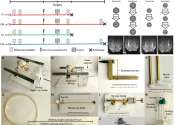Using genetics to help smokers quit: Study investigates abnormal dreams on varenicline
Researchers have identified variants in a gene that influences the likelihood of smokers developing abnormal dreams while taking a medication to help them quit.
10 hours ago
0
1









